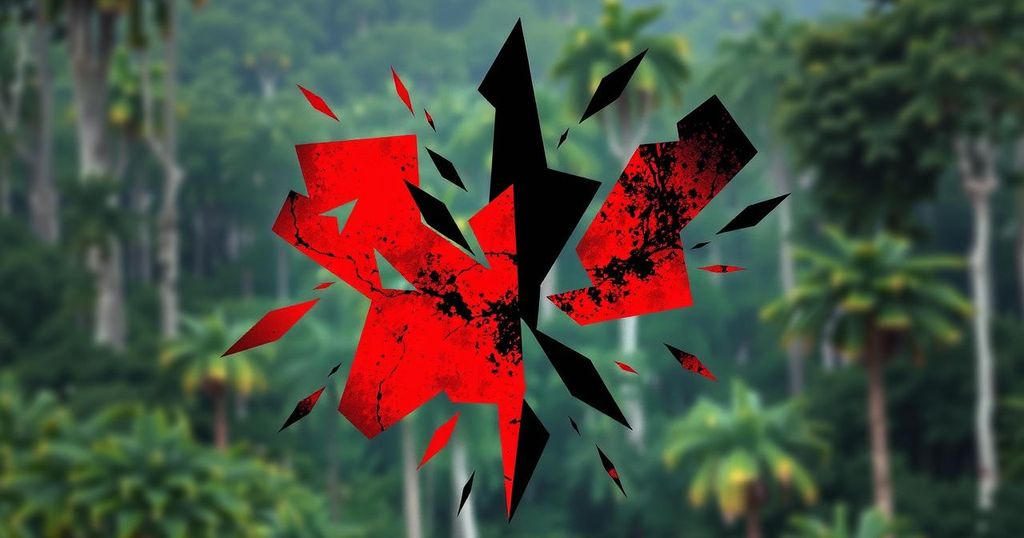The M23 rebels have regained control of Goma, which has heightened violence in the DRC, resulting in the deaths of soldiers and the displacement of over 400,000 individuals in 2023. This conflict is driven by ethnic tensions and competition for valuable resources. Allegations of Rwandan military support for M23 raise geopolitical tensions, prompting calls for urgent diplomatic interventions to address the escalating crisis.
The M23 rebels have escalated their control over Goma, a strategic city in eastern Democratic Republic of the Congo, marking a significant intensification of ongoing violence. This resurgence in conflict has resulted in the deaths of at least 13 peacekeepers and the displacement of over 400,000 people this year, leading to one of the most severe humanitarian crises globally, as reported by the United Nations.
The rebel group M23, formed in 2012 from defectors of the Congolese army, primarily consists of ethnic Tutsis who claim to defend their community against discrimination from Hutu militias. Goma’s situation is emblematic of a broader struggle for control in the mineral-rich region, where around 100 armed groups are competing for dominance.
In early developments, M23 provided a deadline to government forces to surrender, facilitating their entry into Goma, where some residents expressed a conflicted response, recognizing both fear and a need to appear accommodating. This reflects the complex local dynamics amid the escalating clash.
M23’s objectives include defending ethnic Tutsis and seizing control of mineral wealth, notably coltan, vital for electronics. The group reportedly generates significant income from taxes levied on mining operations in territories it occupies.
The M23 rebels are currently engaging in combat against the Congolese army and its allies, which include UN peacekeeping forces. The UN mission, established in 1999, numbers approximately 14,000 troops; however, their mandate limits direct confrontations with rebel groups despite criticisms regarding their effectiveness.
Suspicions persist regarding Rwandan support for M23, with claims of up to 4,000 Rwandan soldiers operating on Congolese land. Rwanda denies such allegations, but tensions between the two nations have sharpened over these accusations, as M23 is seen as serving Rwandan interests in the region.
Amidst this precarious environment, leaders from Congo and Rwanda have been urged to convene for emergency talks to address the conflict. The situation remains highly volatile, necessitating cautious diplomatic engagement to avert heightened hostilities in the region.
The conflict in the eastern Democratic Republic of the Congo is steeped in ethnic tensions and contestations for control of valuable mineral resources. The area has experienced decades of violence, particularly since the aftermath of the Rwandan genocide in 1994. Numerous armed groups, including the M23, vie for dominance amid a history of failed peace accords and shifting allegiances, exacerbating humanitarian crises and regional instability.
The resurgence of the M23 rebels in eastern DRC has highlighted the ongoing ethnic conflicts and resource struggles that plague the region. Amid significant humanitarian consequences, increased violence has prompted international scrutiny and complicated geopolitical relations, particularly with Rwanda. The urgent need for diplomatic efforts and effective conflict resolution strategies remains vital to restore peace and security in this volatile area.
Original Source: theweek.com






